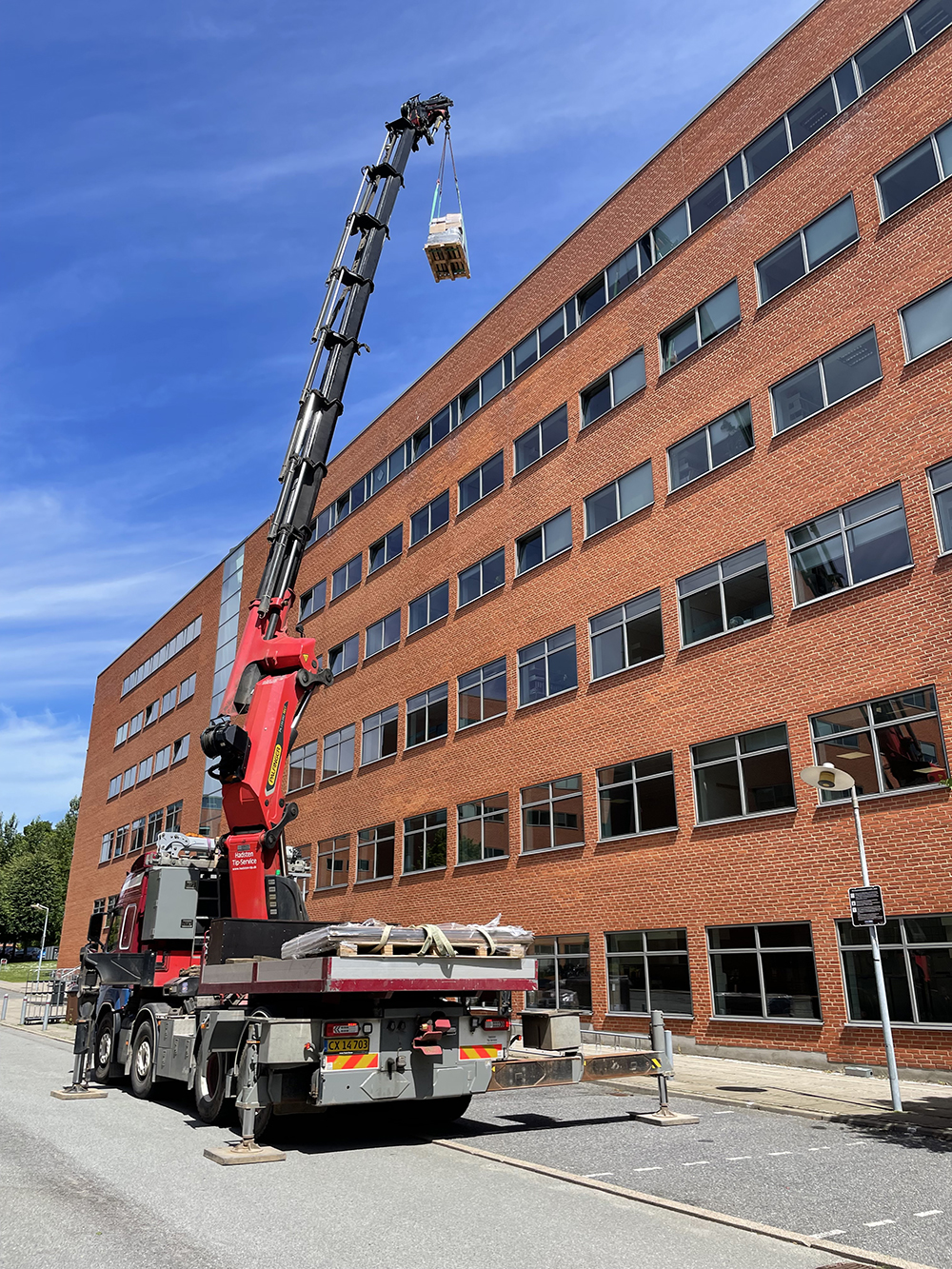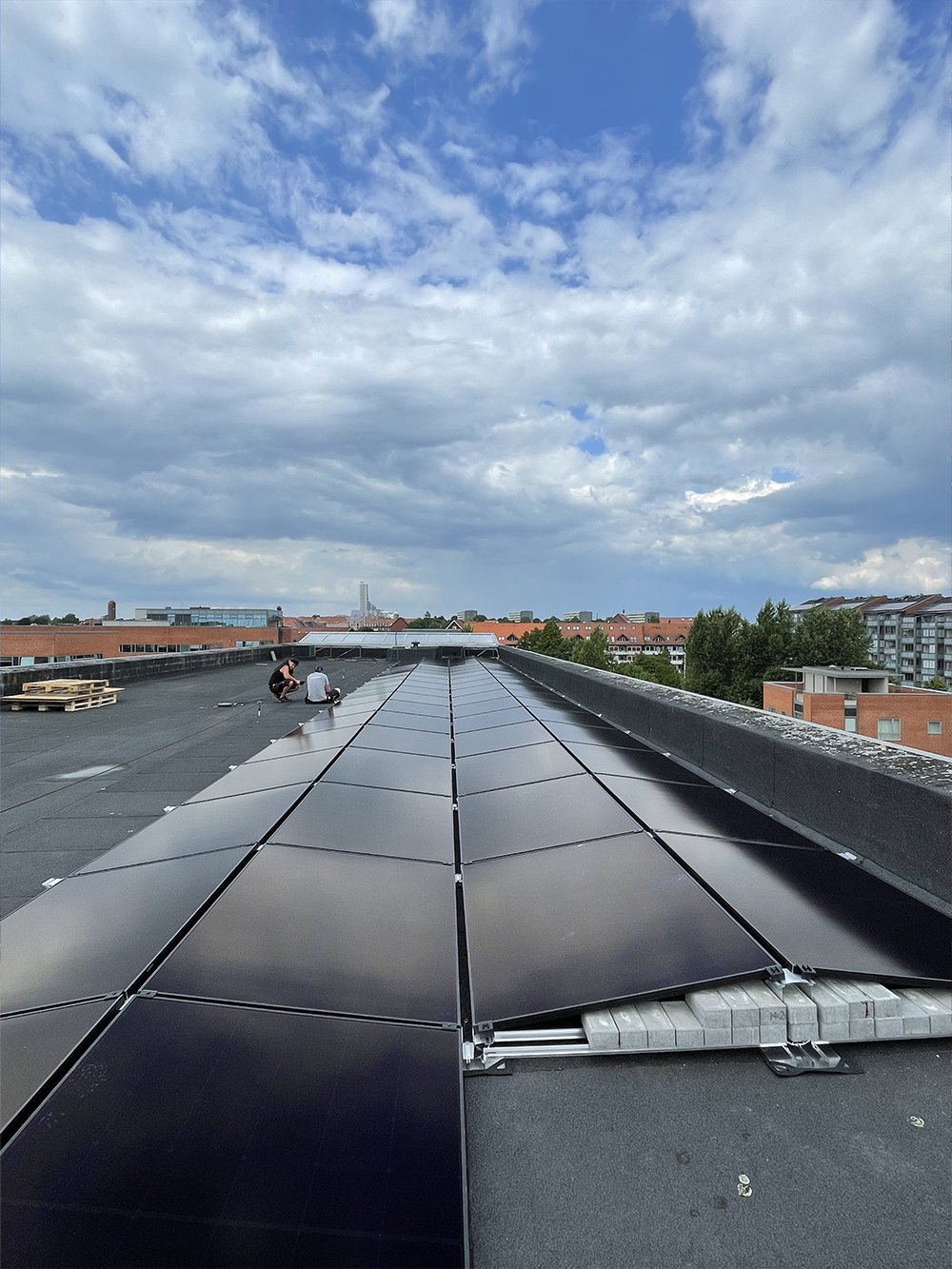First crowdfunded solar photovoltaics now installed on campus rooftops
Aarhus University is making its rooftops available for solar PVs financed by students, employees and the citizens of Aarhus. The first solar PVs have already been installed, and it is hoped that more organisations and companies will jump at the chance to take part in the green transition.
![[Translate to English:] [Translate to English:]](/fileadmin/_processed_/4/8/csm_Solceller_paa_universitetets_tage_359a6ed99d.jpg)


The first crowdfunded solar PVs are now in place on the roofs of several buildings at Aarhus University as part of the EU-supported pan-European research project: AURORA. The solar PVs have been bought and paid for by students and employees at the university and by the citizens of Aarhus, and they are yielding returns every year through the electricity they produce.
Behind it all is the solar cooperative and energy community UEF (Universitetets Energifællesskab F.M.B.A.), which was founded by students and staff at Aarhus University, including Associate Professor Marta Victoria and academic staff member Zhe Zhang from the Department of Mechanical and Production Engineering.
The project aims to encourage people to support the green transition of energy production and to forge a sustainable university by offering people an opportunity to buy shares in solar PV installations to replace traditional energy consumption at the university.
The solar PVs are expected to produce 86,000 kilowatt-hours (kWh) of electricity annually, corresponding to the electricity consumption of 20 Danish households. The carbon footprint of the buildings will also be reduced, underpinning Aarhus University's commitment to the green transition.
Locally rooted ownership of the green transition
UEF was founded as a local energy community in 2023 as part of the European research project AURORA, the aim of which is to engage citizens in solar projects in several European countries.
"We’re proud to have recruited 120 members in the past year, and they have crowdfunded a 98-kWp solar PV system. We’re especially pleased about the participation of students who live in flats and therefore can’t instal their own solar PV system or can’t afford a large installation," says Andreas Jacobsen, chairman of UEF and a PhD student at Aarhus University.
The solar PV installation will supply electricity to Aarhus University through the own-consumption-via-third-party framework, which means that UEF members will receive an annual financial return from sales of electricity to Aarhus University.
Green energy not the only benefit
The project was run collaboratively with the property owner FEAS Erhverv P/S and the company 1KOMMA5° Danmark and it not only supplies clean energy, but also functions as a learning tool for students and researchers at the university. The solar PV installation is equipped with monitoring technology to provide real-time data for use in renewable energy studies. Furthermore, the project serves to demonstrate how energy communities organise themselves at Danish universities.
"We’re delighted to be able to contribute to projects of this size. Because it shows how a modern university, such as Aarhus University, can use solar energy to create a greener educational environment, achieve financial gains and contribute to a more sustainable world, all the while making renewable energy more accessible and 'hands on' for students," says Christopher Ovesen, co-founder and partner in 1KOMMA5° Danmark.
"This is the first solar cooperative at a university in Denmark. The road to getting where we are today has not been easy, but we’ve shown that it is possible. Now many other universities, hospitals and public administrations can set up their own solar cooperatives," says Marta Victoria, associate professor at the Department of Mechanical and Production Engineering at Aarhus University, and member of the UEF board.
Marta Victoria considers AURORA a kind of pilot project which will hopefully spread to even more green projects at the university and in society in general.
Contact
Associate Professor Marta Victoria
Aarhus University, Department of Mechanical and Production Engineering
Mail: mvp@mpe.au.dk
Tel.: +4522631595
